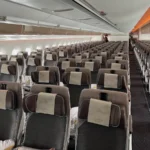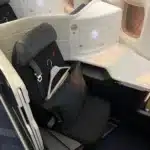Skiplagging, also referred to as “hidden-city” or “throwaway” ticketing, is the practice of booking a less-expensive flight option with a layover city without planning to fly the entire route. Instead, the stopover is the traveller’s intended destination. This strategy is primarily used to find cheaper airfares, as flights with layovers at a desired destination might sometimes be priced lower than direct flights to that same location.
For instance, if someone wants to fly to Miami from New York. Prices are high if they book direct, but if they fly New York to Miami to Orlando, they can save $150. They could book that, pocket the savings, and then get off the plane in Miami instead of continuing on to Orlando.
This can be a way to save money, but it’s important to note that airlines generally discourage this practice and it can have some drawbacks and risks:
Luggage Routing: If you have checked baggage, it might be tagged to your final destination (City B in the example above). If you disembark at the layover (City C), your luggage might continue on to City B without you.
Return Flights: Airlines often cancel the remaining legs of your itinerary if you don’t complete the previous legs. So, if you only take the outbound flight and skip the layover, your return flight might be canceled.
Frequent Flyer Miles: Skipping segments of a flight could affect your frequent flyer miles or rewards status with the airline.
Legal and Ethical Concerns: While it’s not illegal, it can violate an airline’s terms of service, and airlines could take action against frequent offenders.
Unpredictability: Flight schedules can change unexpectedly due to delays, cancellations, or rescheduling, which might affect your ability to follow through with the “skiplagging” strategy.
In fact, there’s an entire travel service dedicated to this practice called Skiplagged.com, which alerts customers to hidden-city deals and “exposes loopholes in airfare pricing to save you money.”
Why do the airlines hate skiplagging?
Skiplagging is not illegal. But most major American airlines, including American, Delta Southwest and United, don’t allow it.
For one thing, airlines lose money on the practice, says Tim Huh, a professor at the University of British Columbia’s Sauder School of Business, who co-authored a study on skiplagging last year. For a non-direct flight, “they have a lower price ceiling for it compared to direct flights so that they can attract customers.”
When someone skips out on the final leg of a trip, airlines can’t fill the empty seat, which would have sold for more money had it not been booked as part of a multi-stop itinerary.
“They are selling that seat with a 95% probability that you’ll show up,” Huh says. “That’s what the airline accounted for. So that’s a [big] loss in the system.”
In addition, failing to board a connecting flight can cause confusion and delays at the gate, Harteveldt says. The airlines “will make announcements [such as] ‘paging passenger John Doe or Jane Doe.’ … The airline doesn’t want to leave people behind.”
What are the risks for customers who skiplag?
If an airline finds out what you are doing, it could simply cancel your ticket or even ban you from flying with it. That’s what reportedly happened recently to a North Carolina teen who booked an American Airlines flight from Florida to New York but disembarked at his Charlotte connection. American banned him from flying the airline for three years.
“If you’ve done this repeatedly, [the airline] is going to say you owe us money,” Harteveldt says. “They may be willing to settle for a certain number of cents on the dollar. Maybe they want to collect all of it. But airlines can and will take steps to protect themselves.”
There are other drawbacks as well, he says. Even if your attempt at skiplagging is initially successful, it’s only likely to work for one-way travel. Once the airline realizes you didn’t fly to your ticketed destination, it is almost certain to cancel your return.















